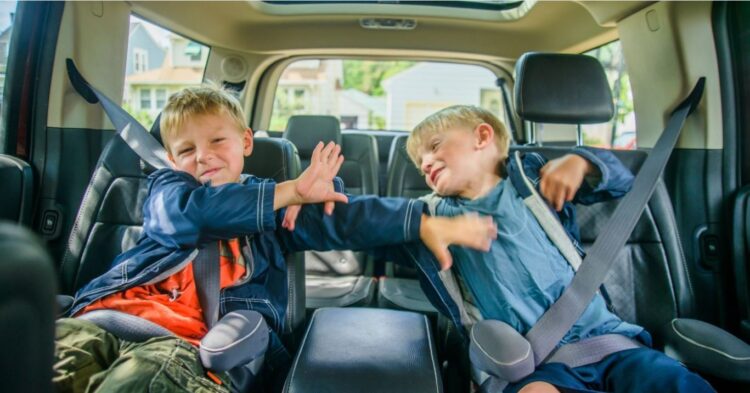Do you think birth order has an effect on personality? It’s something we’ve all wondered, especially once we start becoming parents ourselves.
For many parents, one glaring difference they see between their first child and their second is how their second child seems hell-bent on causing mayhem.
When many parents welcome their second child, they think they know what they are in for.

After all, this isn’t their first time around the parenting block. They are seasoned parenting pros, right?
Well, many parents report that it seems that their second-born child is a little more, uh, challenging to say the least.

While first-borns seem to enjoy following the rules, their younger siblings seem to enjoy challenging authority.
A new study confirms that these parents aren’t imagining things.

Researchers from MIT studied thousands of children in Denmark and Florida. They focused primarily on families with boys, since they tend to have higher levels of delinquency overall.
One of the most surprising findings from the study was that second-born children were 20-40% more likely to face discipline at school than first-borns.

And this trend continues into adulthood as well.
As they got older, the second-born children in the study were also more likely to serve jail time compared to their older siblings.

Even though they examined families in the United States and Europe, these findings were consistent in both locations.
The reason why second-borns seem to misbehave more?

It all goes back to parental attention. With more children in the house, parents aren’t able to focus as attentively on their kids as they had with their first-born, researchers said.
Which is definitely true when you really stop to think about it.

First-borns have the luxury of soaking up all the attention their parent(s) has (have) to give. For a certain period of time, they’re the only children in their parents’ lives, and therefore the only recipients of their attention.
All that changes once another child comes along.

Now parents have to try and divide their attention equally among their children, which means second-borns aren’t getting nearly as much attention as their older siblings once did.
You also have to consider your second-born’s role models.

Unlike the first-born, who only really has adults, like their parents, to look up to, the second-born has their older sibling to look to when figuring out how they should behave.
And depending on how old that older sibling is, this could make for a troublesome second-born.

After all, their siblings are usually still in the toddler-age themselves and their behavior won’t exactly be very mature just yet. But that’s the behavior that the second-born has to look up to.
As researcher Joseph Doyle explained, it can be difficult to pin an exact reason behind the differences between first- and second-born siblings.

“Both the parental investments are different, and the sibling influences probably contribute to these differences we see in labor market and what we find in delinquency. It’s just very difficult to separate those two things because they happen at the same time,” he said in an interview with NPR.
Even though this study had some interesting findings, it’s important to keep in mind that every family and kid is different.

Overall, the children in the study who faced extreme disciplinary action like school suspensions or jail were in the minority.
















































